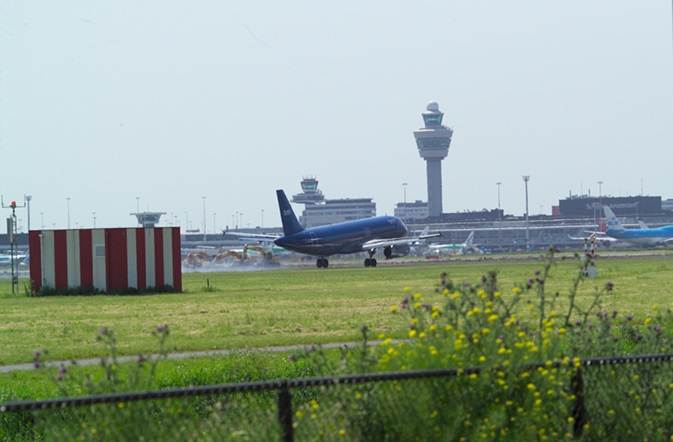Airlines
EU Air Passenger Rights
- The Dutch Human Environment and Transport Inspectorate (ILT) is designated ‘National Enforcement Body’ for EU air passenger rights:
- denied boarding, cancellation or long delay of flights (EC No 261/2004)
- rights of disabled persons and persons with reduced mobility when travelling by air (EC No 1107/2006)
These regulations apply to all flights departing:
- from airports in EU
- outside the EU and arriving in the EU with a flight operated by EU carriers
Free leaflets in all the European languages with information about these regulations can be obtained at the publications office of the European Union. An example of the English leaflet can be found (verwijzing naar passenger-right leaflet).
ILT enforcement powers are based on the Dutch General Administrative Law Act. Non compliance with enforcement is seen as a criminal offence. The airline is obliged to:
- cooperate with ILT investigations,
- provide the requested information in a correct and timely way.
A document with relevant Dutch law articles can be found (verwijzing naar document Relevant Dutch Law Articles).
Passengers may complain at ILT about an alleged infringements by airlines of the EU Air Passenger Rights. ILT will only handle complaints if the passenger attaches a reply of the airline on their complaint, or if the passenger states the airline did not reply to the passenger within 2 months.
Obligations for airlines
Information
The airline is obliged to inform the passengers:
With a clearly legible notice visible to passengers at the check-in with the following text "If you are denied boarding or if your flight is cancelled or delayed for at least two hours, ask at the check-in counter or boarding gate for the text stating your rights, particularly with regard to compensation and assistance".
with a written notice setting out rules for compensation and assistance.
The ILT checks the airline procedures and processes for informing passengers of their legal rights during flight disruptions.
In case of long delay
The airline needs to:
- offer meals and refreshments (vouchers)
- offer hotel accommodation and transfer (in case of overnight stay)
- 2 telephone calls or emails
- compensate the passenger unless there is an extra ordinary circumstance
| Flight sitance | Arrival delay | Compensation |
| Up to 1500 km | More than 3 hours | € 250 |
| 1500 - 3500 km | More than 3 hours | € 400 |
| More than 3500 km | Between 3 and 4 hours | € 300 |
| More than 3500 km | More than 4 hours | € 600 |
Relevant EC court rulings:
- Case C-452/13 (Germanwings); To determine the length of the delay, the arrival time refers to the time at which at least one of the doors of the aircraft is opened.
- C11-/11 (Folkerts); A passenger on directly connecting flights who arrives at the final destination at least three hours later than the scheduled arrival time has a right of compensation based on article 7 of the Regulation. ILT interprets directly connecting flights as follows: the flights must be operated by the same air carrier. And as soon as one of the transfers is outside the EU the length of delay is determined at that moment, even if it is not the final destination of the passenger.
- C‑432/07 (Sturgeon); The amount of the compensation may be reduced by 50%.
In case of cancellation of the flight
The airline needs to:
- Offer a refund or an alternative flight
- offer meals and refreshments (vouchers)
- offer hotel accommodation (in case of overnight stay)
- 2 telephone calls or emails
- compensate the passenger unless there is an extra ordinary circumstance
| Flight distance | Arrival delay | Compensation * |
| Up to 1500 km | More than 2 hours | € 250 |
|
1500 - 3500 km |
Between 2 and 3 hours | € 200 |
| 1500 - 3500 km | More than 3 hours | € 400 |
| More than 3500 km | Between 2 and 4 hours | € 300 |
| More than 3500 km | More than 4 hours | € 600 |
* The amount may be reduced by 50% (see article 7, sub 2 of the Regulation)
Extraordinary Circumstances and reasonable measures (preambule 14)
In case the airline wants to rely on extraordinary circumstances, the airline has to proof the extraordinary circumstance as well as the reasonable measures taken.
Examples of reasonable measures are all actions taken to minimize the effect of the delay for passengers, for instance:
- Re-routing passengers (to another flight or airline),
- Fleet rescheduling, replacement of aircrafts (with explanation and planning)
- Proof of no alternative actions available
- etc.
The airline has to proof that all reasonable measures have been taken to avoid the flight incident and that the event was beyond their own control.
Relevant EC court ruling:
- Case C-257/14 (Van der Lans); Technical problems, even the unexpected ones, don’t fall within the definition of ‘extraordinary circumstances’.
Sanction policy:
The ILT has as general approach regarding sanctions.
The approach is explained in the intervention matrix. The application of the intervention ladder can result in different types of sanctions for violations of Air passenger Rights.
- The airline can be sanctioned with an official warning.
- The airline can be summoned for a corrective hearing (administrative discussion).
- The ILT can impose an order subject to a penalty for non-compliance.
The ILT has several options for sanctioning on violations of the European air passenger rights regulations.
